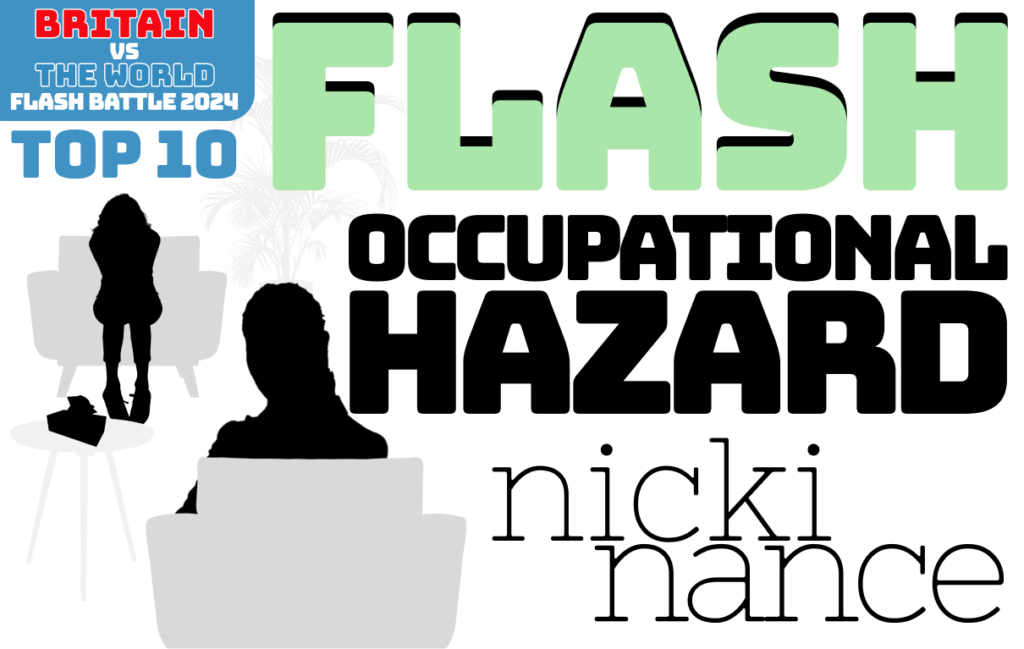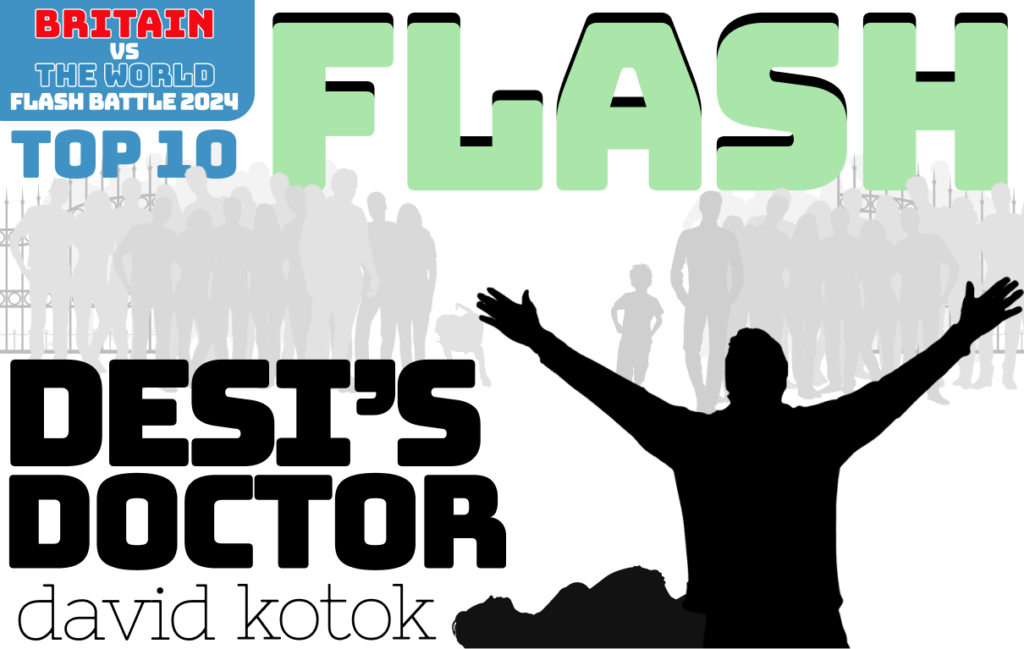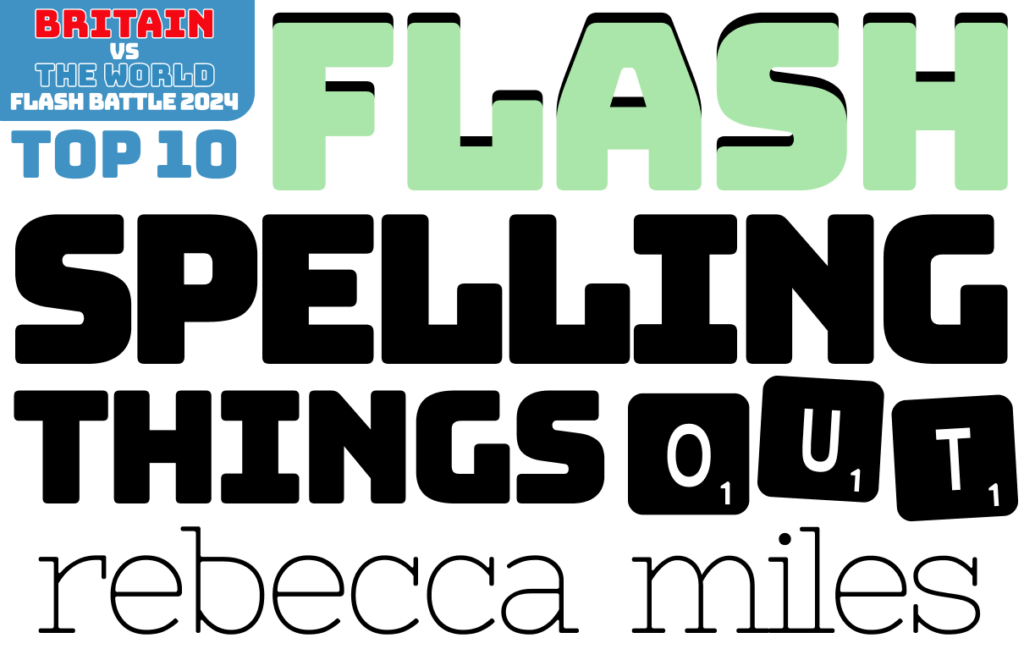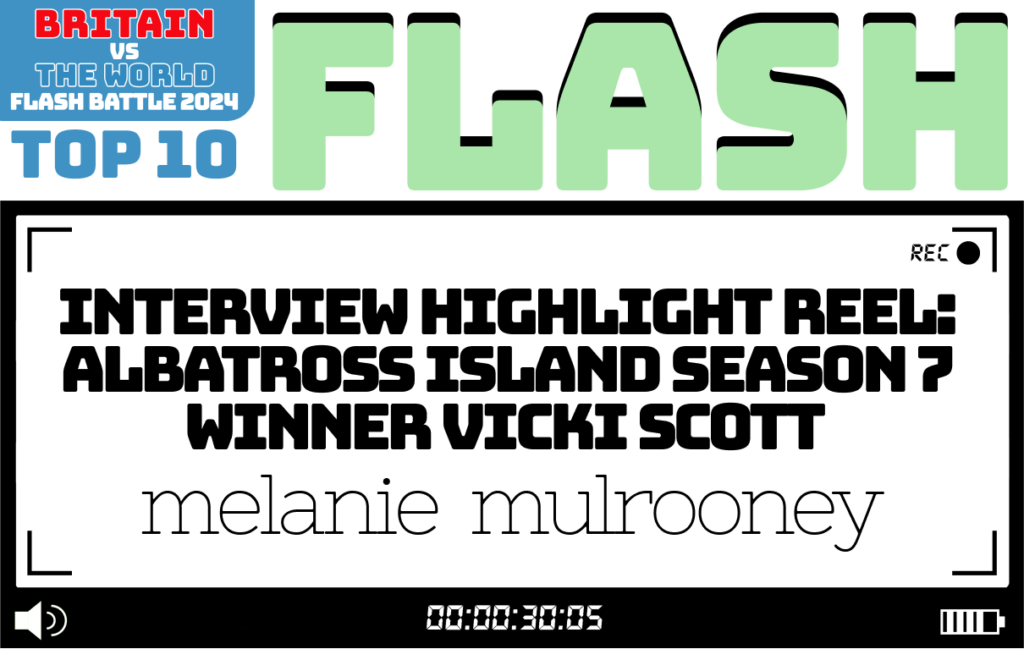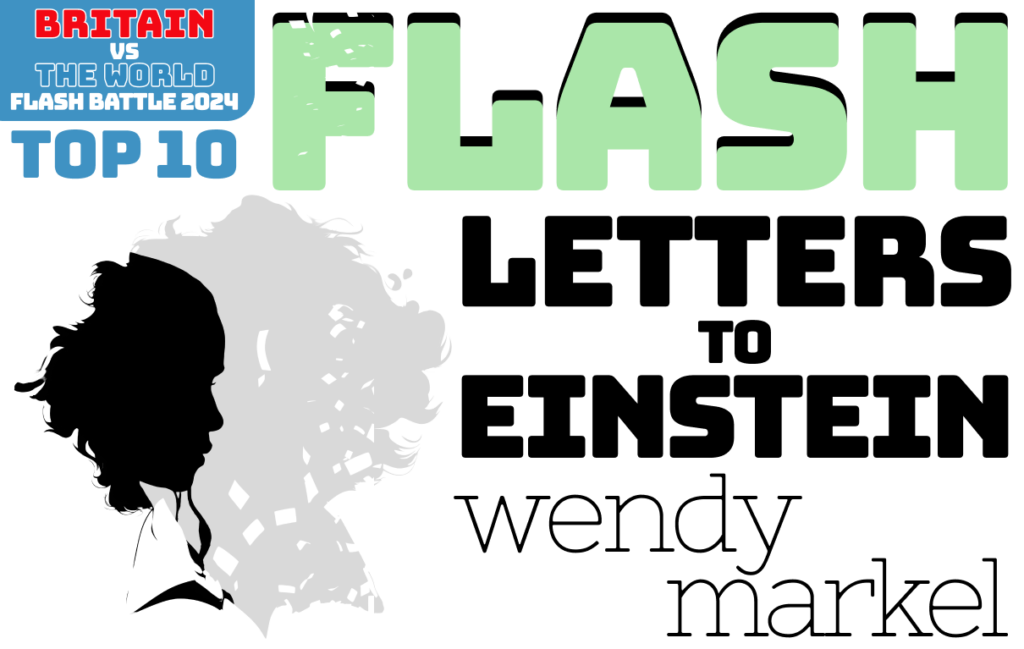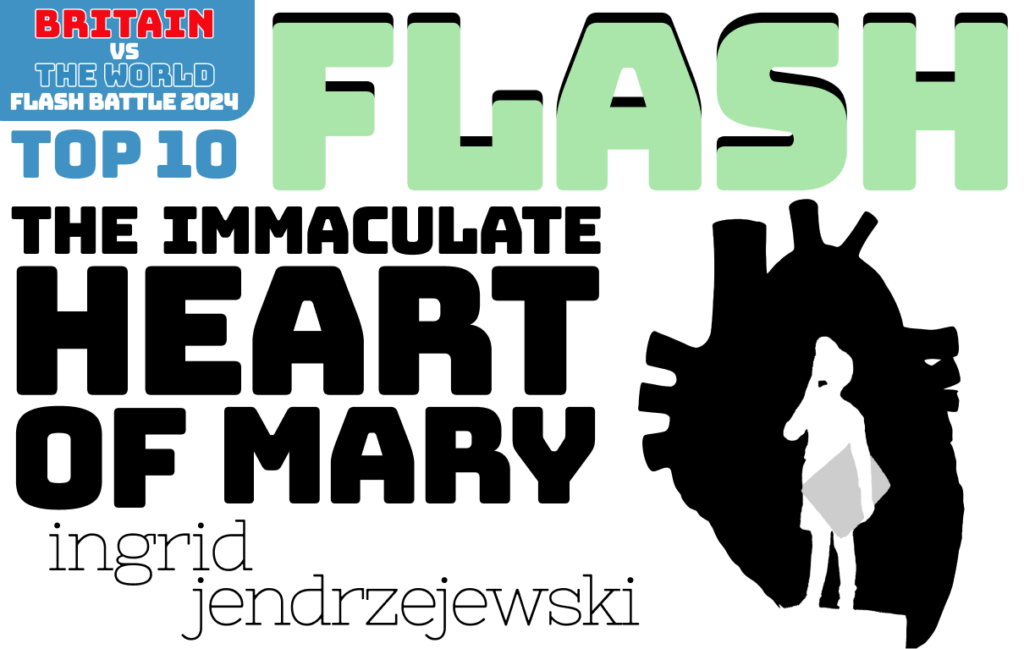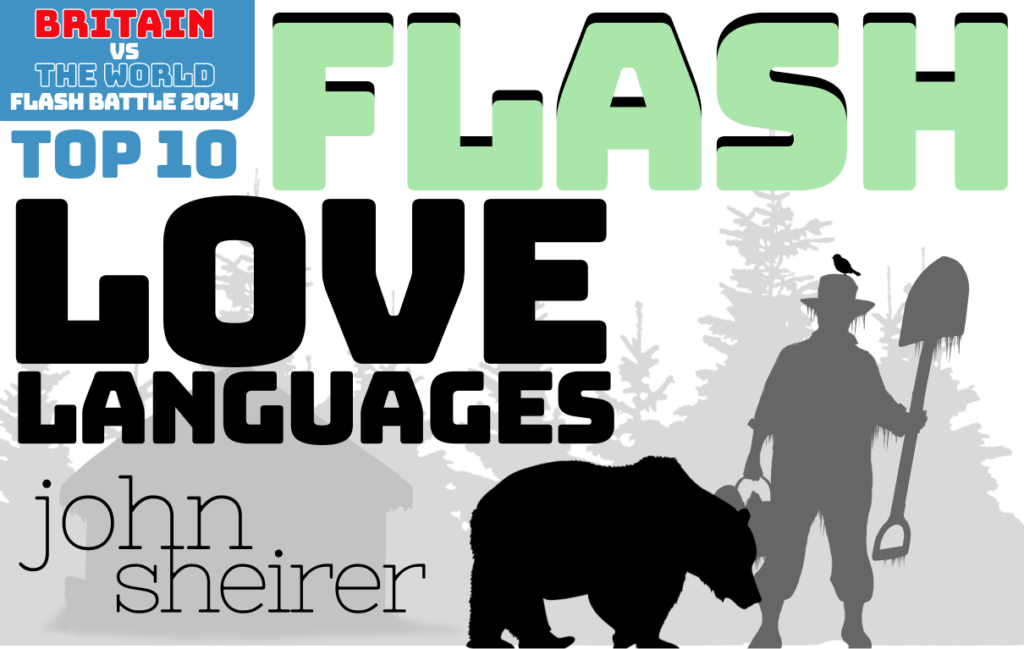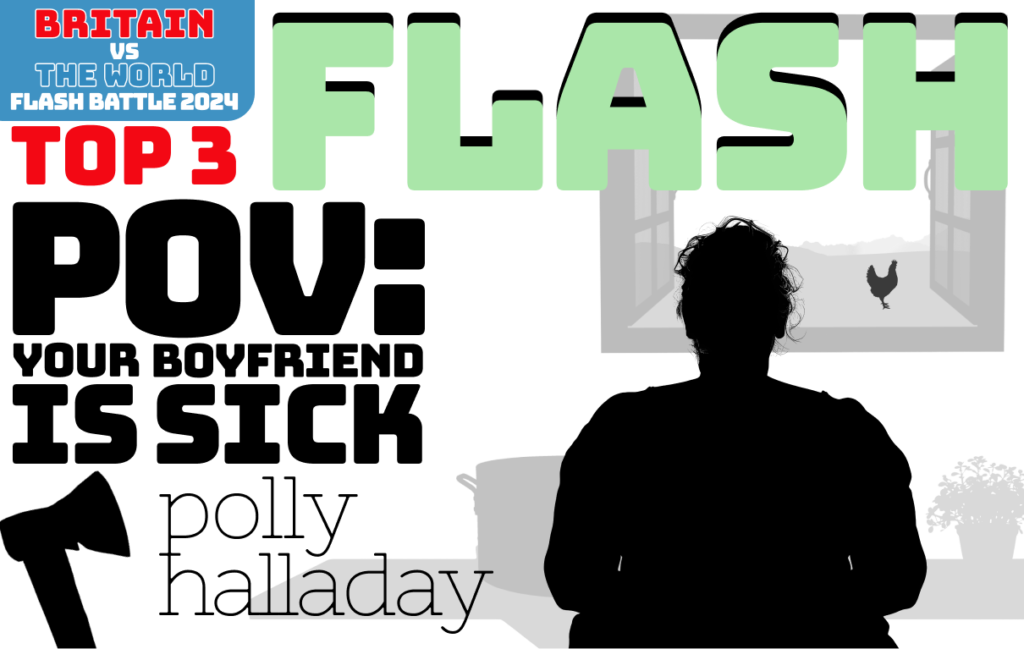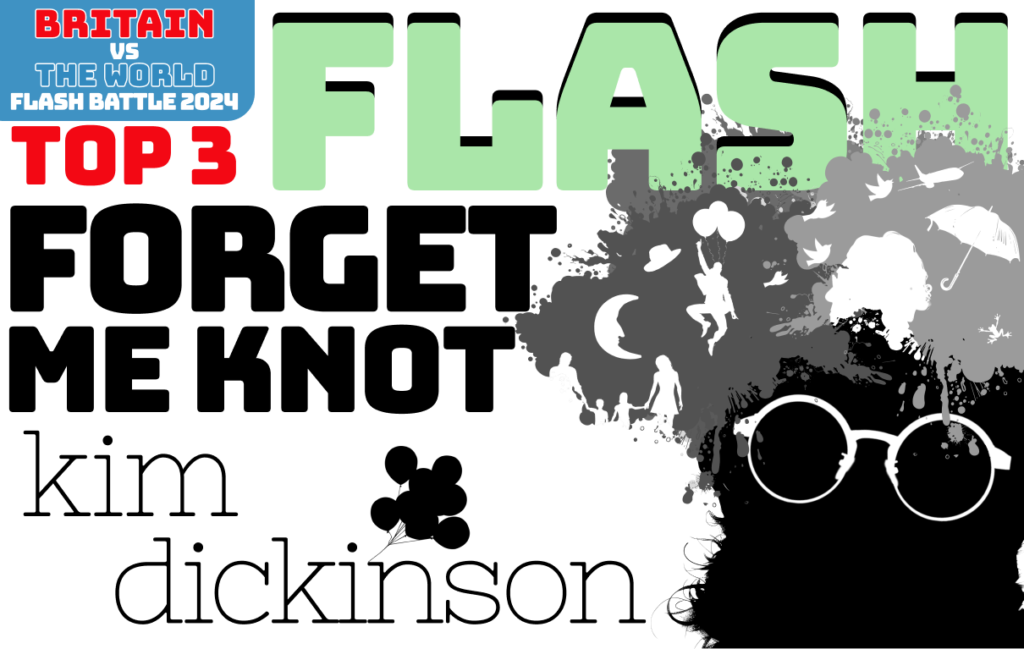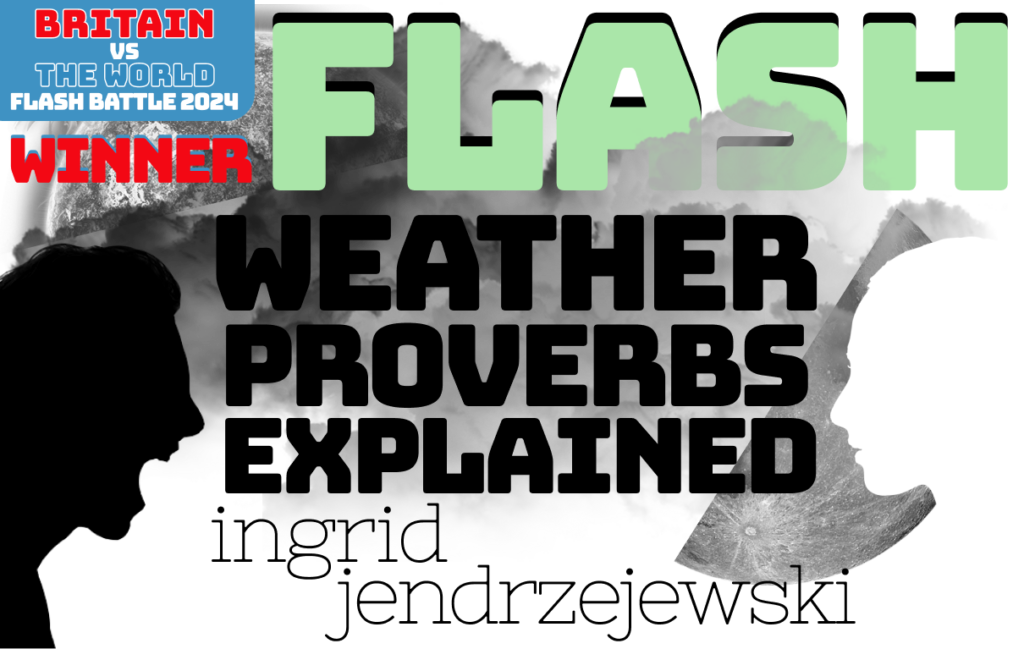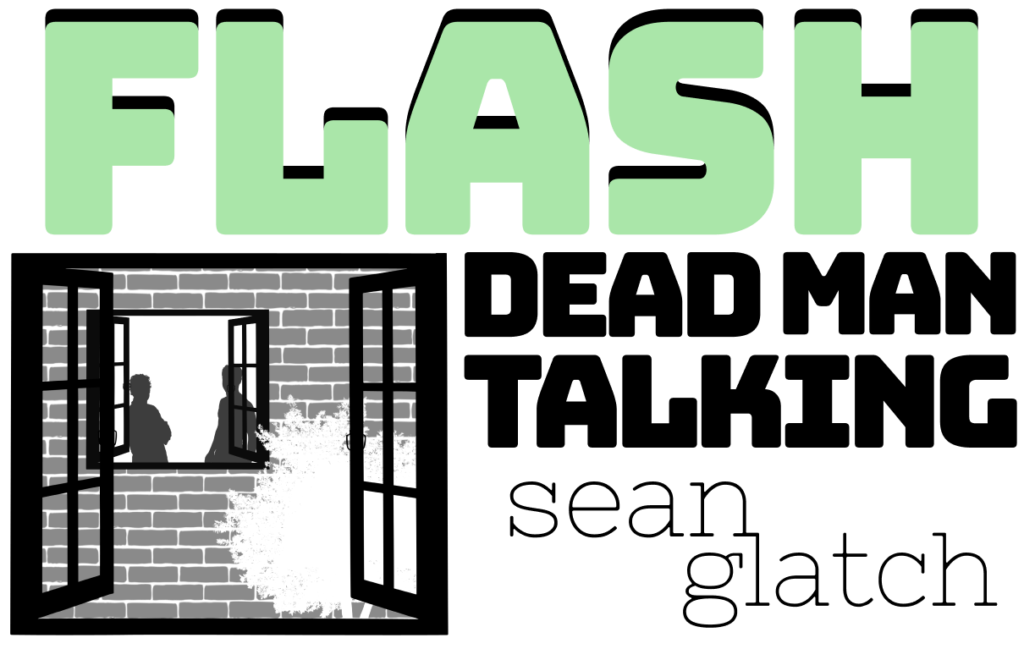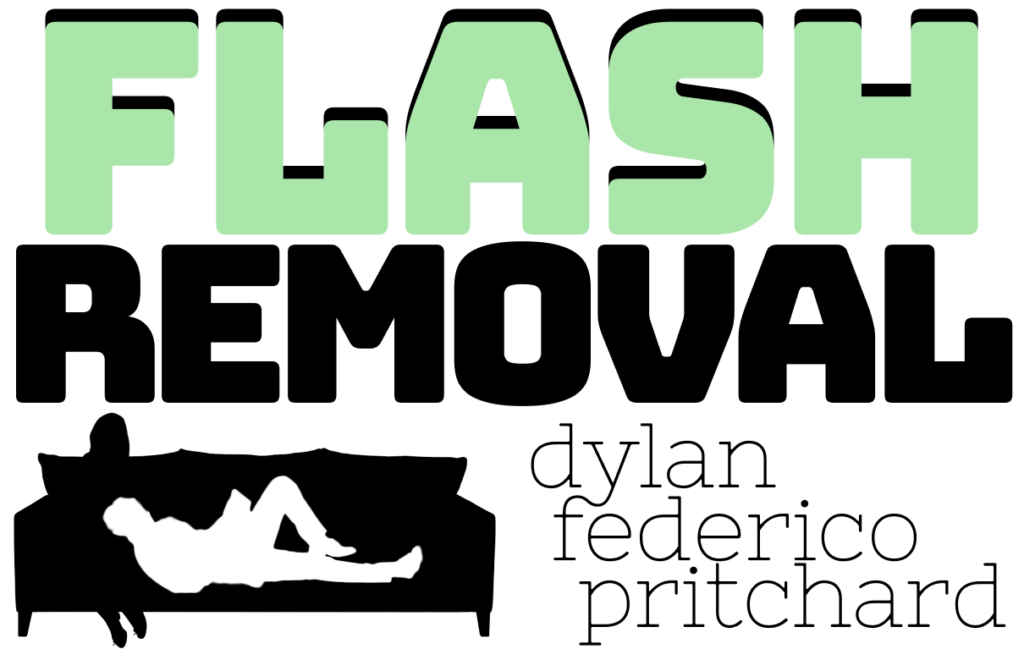It's a knockout!
That’s it. Stop pummelling each other, please. Go and get some electrolytes. Maybe consider a shower.
Britain vs The World: Flash Battle 2024 is a wrap! We’ve read all the entries – 120+ from 5 continents, thankyouverymuch – and assembled our Top 10. Our superstar judges have given their rankings, we’ve whizzed them through the calculator, and we have our winners.
Let us just say that you, dear Writers, made this all incredibly hard. We gave you 500 words. You said, ‘hold my beer.’ Well, we held that beer! We clung onto it while you launched us into every nook and cranny of the human imagination. We took a sneaky sip when you made us think, downed the rest when you made us cry. You also made us do a spit-take on more than one occasion… [The beer analogy is now at an end. Cheers.]
The Top 10 we’ve assembled could very well have been a Top 30. As we riffled through all your entries to put together the shortlist, we came to a beautiful realisation. Ours is a new, little magazine. We’ve been going about 5 minutes. But even here, excellent writing has found its way. We’re not exaggerating to say that every story we read had quality in it. Our finalists, we think, were the ones who were able to assemble their best bits in the most cohesive way. They were able to surprise us and delight us and do that thing the best can do: show us the world from a different angle, and somehow renew it.
Thank you to absolutely everyone who has taken part – writers and readers both. We’re going to be busy putting together our feedback for every single entry over the next few weeks. For those who have submitted, keep an eye on your inboxes and you’ll hear from us soon. For those who are just in it for the stories – you’ve got a lot to look forward to.

Here's what our judges had to say:
Sean glatch

These stories are delightful, imaginative, structurally compelling, and written with such voice and talent. The depth and breadth of the human experience feels represented in these bite-sized stories. I had a blast wading through the worlds these writers built in under 500 words —some of them fantastical, others startlingly realistic, all of them revealing the beauty and complexity of what it means to be alive. How do you tell a complete story in only a page or two? Study these writers, they’ve clearly figured it out.
Rebecca klassen

The top ten of this competition was an especially eclectic and entertaining mix of an extremely high standard. I admire each writer for such great flexing of their flash muscles. Some stories wrapped up in an airtight and satisfactory manner, others left me wondering and contemplating big topics. There were moments I laughed out loud, and others that made my heart ache. No format was the same as the writers pushed boundaries and took risks with their writing, all of which paid off. They should all be extremely proud of their work. It truly has been a pleasure to read each piece.
judges' comments:
I like this story’s irony, which permeates every facet of the writing, especially the characters’ dialogue. There’s a lot of unspoken hurt in the characters’ wryness towards one another, each trying to conceal the losses very much weighing them down, each doing a terrible job of it. I think this story hits it on the nose when the narrator writes “now she was history’s hostage.” That’s a powerful turn of phrase, and while the narrator is talking about June, she’s also talking about herself. Nice work.
Sean glatch
The meticulous start and the neat ending tie together so well. The dialogue flows easily, and soon pulls you into June’s tormented and difficult life. The therapist adds humour and lightness, which has a great juxtaposing effect on the seriousness of the patient’s problems. There is a hint that the therapist had their own problems, and a more identifying hint about those problems would’ve gone a long way. The story’s ending has a great uptick for both the therapist, the temp, and June, which gives a satisfying ending.
Rebecca Klassen
judges' comments:
An enchanting, vivid piece, with a compelling and complicated narrator. Is he a magician or a skilled performer? Does he want to heal the world, or simply crave the world’s admiration? I loved engaging with this piece and with Achintya’s theatrics, set inside a rich, imaginative world that I would surely explore more, given the chance. The final line ties things up both neatly and ambiguously, with a certain precise bluntness that demonstrates mastery over this character, without revealing any of his mysteries. Magical work.
Sean glatch
A dark, fantastical genre piece with evocative imagery, this story pulled me in from the start as ‘The metal gates rang like crazed gamelan under the fists of the mob.’ The extraction from the pregnant woman was particularly gripping, and the shaman’s tenderness as he covered her nakedness built a strong and likeable character. I particularly liked that after all the drama the shaman had to endure, his life went back to run of the mill dealings, making me admire him all the more.
Rebecca Klassen
judges' comments:
This story does a great job of showing us Max’s pain and desperation. I really feel for him. Right away, we see how out of place he feels, even against the curious glance of the librarian. Despite not knowing his age, I know he isn’t old enough to be so cynical about fairy tales. The story’s central image of the Scrabble game is a smart way of helping Max say what he needs to with language he doesn’t yet have, and within that, I was moved moved by his spelling of the word “drink” (DRINC)—a testament not only to his age, but to his desperation, his need to communicate his pain with whatever language (or letters) he has. Smartly written and painfully moving. Excellent work.
Sean glatch
The desperation of the main character is set well from the start. The line ‘Sometimes I catch her eye, like I’m a forgotten book; one she’d return to its shelf, if she only knew where to put me’ is especially emotive, and paints a perceptive view of how others see the main character, as well as the main character’s awareness of how lost they are, though I did wonder how in tune a child would be to this. The setting, with radiator warmth, biscuit crumbs and jostling children portrays the library beautifully.
Rebecca Klassen
judges' comments:
The structure of this piece is compelling, with the story’s most intense conflicts and violence happening off camera. This sort of trick, in which the scariest things are just outside of the camera lens, demonstrates a strong command over horror and horror-based storytelling. Vicki’s quick descent into terror is telling, given how cheerful she is in the first two interviews, and the story reveals something dark about humanity (Vicki eats the steak; she’s forced to return for All-Stars.) A smart, ironic examination of reality TV and the evils that happen off-screen (with the blame pointed towards the people on screen). Smart, insightful work.
Sean glatch
From a narrative stance, I loved how the tone gradually changed to something far dark than initially expected. The dialogue was peppered with hints without explaining what had happened. I particularly enjoyed how the entire piece was dialogue, inputting setting that highlighted what we’ve all seen on TV reality shows. I’m fascinated with the ethics of reality shows, and this piece examined the relationship between the contestant, the producer, and the viewers. While perhaps it’s a story we’ve heard before, it’s been cleverly adapted here for the flash format. The flow of the story is extremely readable, and leaves you thinking about it beyond the ending.
Rebecca Klassen
judges' comments:
A lovely piece of historical fiction that spotlights the important women behind one of science’s most important men. This story does a lovely job of revealing Mileva’s importance to Einstein’s legacy, not just supporting his ability to radically change the world of physics, but contributing in no small part to his theories themselves. Mileva’s is a story that demands to be told, and I love that this piece does so from her point of view and in her voice, which is as loving and smart as she must have been in real life. Well researched and well structured. Well written work.
Sean glatch
I found the use of letter-writing to tell the story of Albert Einstein and his relationships fascinating and original. The writer sows well-placed seeds that lead me through some excellent character development and a wonderful twist of an ending. This story made me think about the juxtaposition between achievements and personal flaws. The voice of Mileva is strong, and the subtle change in tone with the use of passive aggression is particularly effective. While the piece is about Einstein and an era long gone, the story is really about so much more, and made me think about how far women have come, and how much further they have to go.
Rebecca Klassen
judges' comments:
I’m entranced by the voice of this piece, and the efficiency of the story’s narration. Each time I reread this story, it reveals something new to me. The girls dressing up as boys to sell papers; the crackling of their paper hearts. The transformation of paper into money into food. And the descriptions in this story have a powerful sense of transformation: a lightness that feels heavy; the blood pumping through the church; blood like ink. At this point, I’m just listing imagery in the story, because it’s all so rich and immersive. The poetic nature of the writing kept me glued to the page, each description revealing something new and surprising and shifting my perspective in lovely and dangerous ways. Wonderful work.
Sean glatch
There is a poetic nature to the rhythm of this piece that pulled me through it with ease. As the narrator loses their sense of identity, the hopeful tone of the story shifts dramatically and enticingly. The allegorical nature of the story is particularly striking, and the imagery of the collection of hearts stayed with me long after the ending. The narrator’s moral quandary is at the root of this flash, and the scope for more without the writer giving the reader everything is what makes it an effective and thought-provoking flash.
Rebecca Klassen
judges' comments:
What a hilarious story! Whimsical and ironic, with just enough imagery to make the story feel real in its absurdism. The story’s attention to detail is what drives it home, how the humdrum of suburban life is imbued with such normalcy as to make the whole story seem strange. I laughed out loud when I read the final line, which ties together each of the story’s elements: the father’s enduring love language, the weird return to normalcy, and the absurdity of raking orange leaves in spring. Set against the back drop of climate change, this story is surprisingly fresh and funny. Delightful work.
Sean glatch
This story was very funny and lighthearted, and as with most good humour, there is a darkness beneath it, underlined by a formidable truth. The husband’s desire to please his wife and show love to the point of his own detriment and potential demise is both tragic and hilarious. Her passiveness to his efforts are both worrying and funny in equal measure, making this piece an original love story. “A curious bear licked enough snow to free him and then wandered back into the woods” made me laugh out loud.
Rebecca Klassen
judges' comments:
The atmosphere of this piece is startling and ominous. Even in the opening, there’s a sense of the dangerous unknown — ‘it will be painless of he takes them correctly.’ There is something so haunting about this line, making me pay attention, (t)read carefully. And the imagery of this piece is so unflinching in its tension, whether a bird is being plucked or a soup is boiling. All of this is aided by the story’s second person narration, which abstracts us from the narrator, makes them seem both close and far away. I loved this story’s ambiguity and intensity, never quite revealing the narrator’s intentions or feelings, but always making me nervous to see what’s around the corner. Haunting work.
Sean glatch
The use of “show, don’t tell” in this flash is top level. The setting isn’t spelled out, yet it is crystal clear, with the use of sodden grass, a chicken coop, and a dog kennel. What’s happening in the narrative is transparent without being told. The subject matter is painfully sad, but the preparation of the chicken soup balances this out with insightful and vivid imagery. There is a lack of emotion from the main character that feels explained by her busyness, clearly preoccupying herself with chores and cooking a soup from scratch to avoid dealing with the horror the lies ahead for both of them.
Rebecca Klassen
judges' comments:
A funny, whimsical piece! I love what this story does by making the characters’ thoughts concrete. (Perhaps this story came out of a brainstorm? Ha!) The dialogue and narration are fresh and witty, but what I loved most in this piece was the sense of transformation. Peter never seems to take the hole in his head too seriously. Instead, it’s an opportunity for freedom, juxtaposed against his wife whose thoughts, also weather-influenced, seemed to weigh him down so much. This makes me love Peter as a character despite how little time I get to spend with him, a testament to how delightful this piece was to read. Fantastic work.
Sean glatch
This is a beautiful story. What I especially enjoyed was how it could be interpreted in a multitude of different ways, but still pack the same punch at the end. The characterisation of Peter, Edna and Maisie was well thought out, and made me feel connected to them, which added to the emotional impact of the ending. The title works hard, as all good flash titles should. The opening line grabs you instantly, and the imagery of Peter’s thoughts is beautiful. I liked that while the story feels complete, there was a bit of the story to finish for myself, as I was left wondering about what Edna might do.
Rebecca Klassen
judges' comments:
This piece is expertly structured; I love the interwoven story and maxims, which comment on each other in smart and subtle ways. Speaking of subtlety, there’s fantastic description in this piece: the woman’s cut finger, the man’s stiff interview suit (set against the woman’s jealousy-inducing promotion). This story has a powerful eye for detail and for the unspoken, even cutting the characters off before they can say what they mean (and we don’t need that: we already know what they mean). And that final line is powerful and bone-chilling. Great work.
Sean glatch
The use of the hermit crab format in this story is written so well, using explanations of the weather to tell a dark story about a turbulent relationship. The writer makes the title work hard, gets straight into the action, and grips us right through to the end with a building storm of tension. I loved the last line, which not only outlines the ending so well, but ties in with the weather theme they’ve built so well throughout. The writer could’ve so easily lost the villain to a one-dimensional bad-guy stereotype, but an added realism with his guilt makes the story feel completely real and tangible.
Rebecca Klassen
Final team points

To our judges, contenders & spectators:
Thank you!
like what you saw? subscribe for more
- content updates, artworks, competition news (and frogs) - direct to your inbox
Read next:



